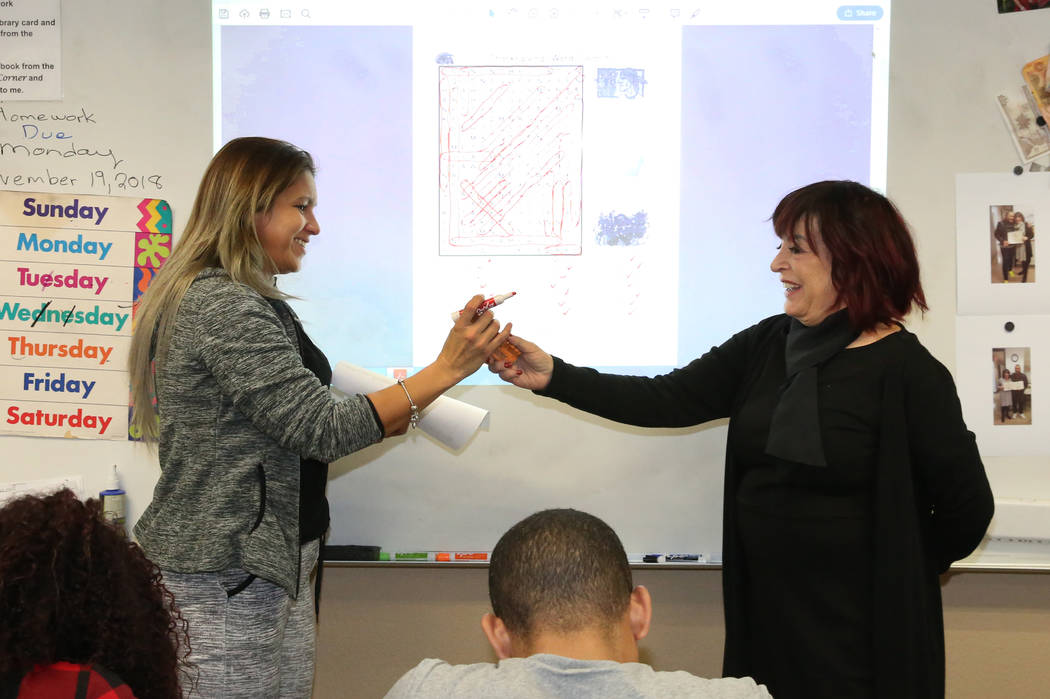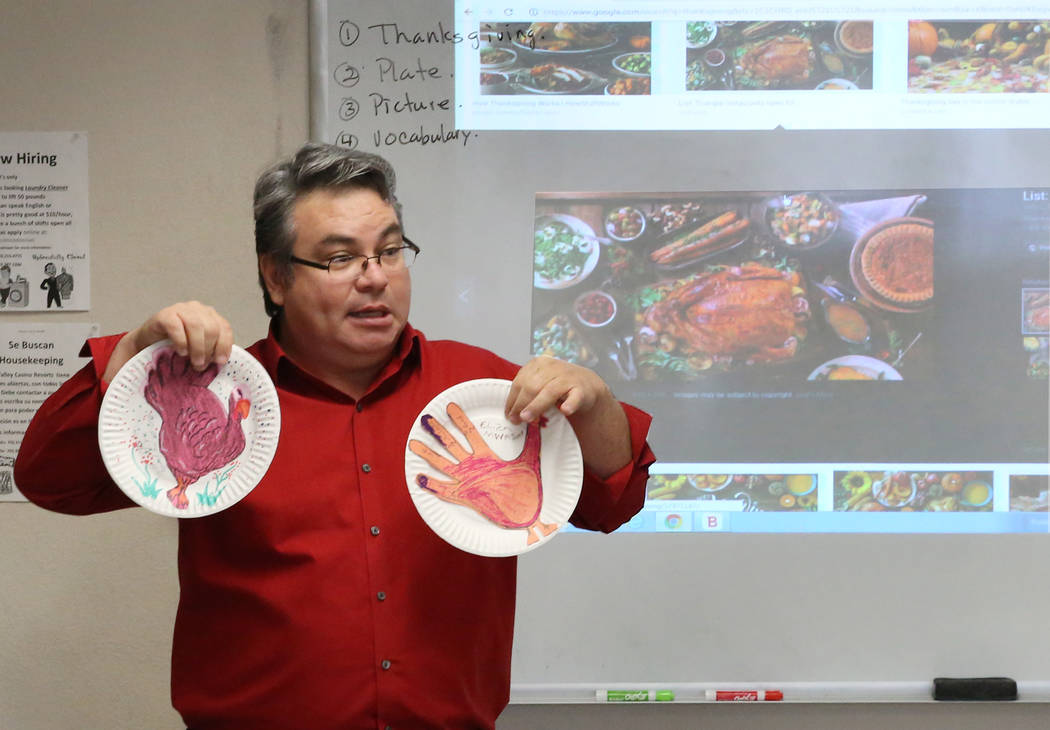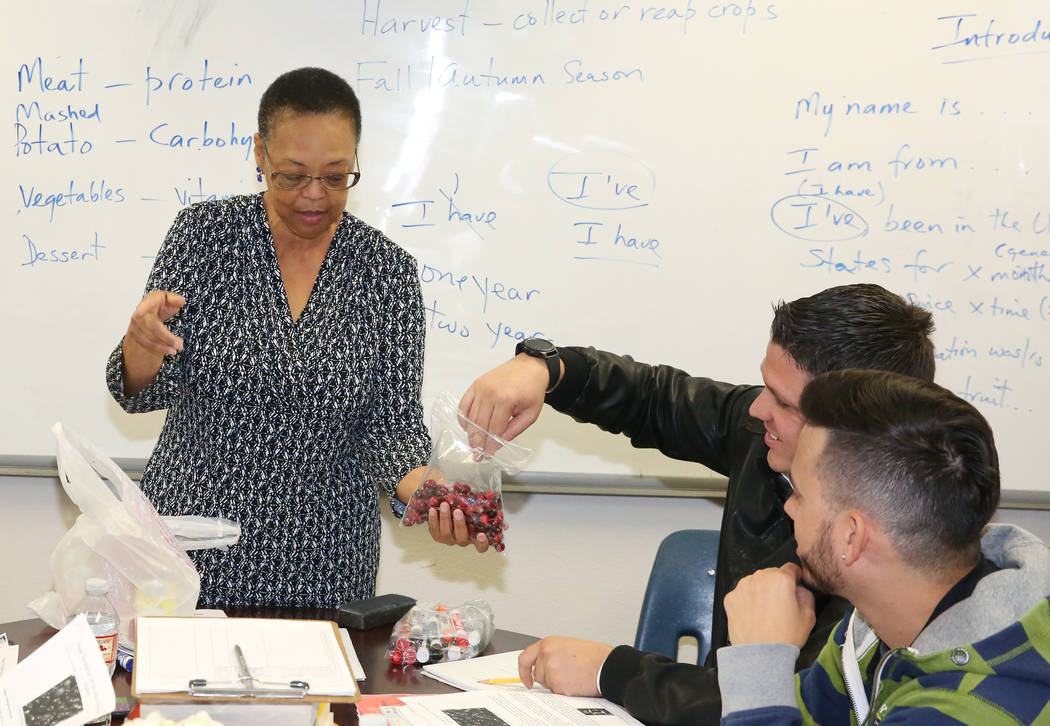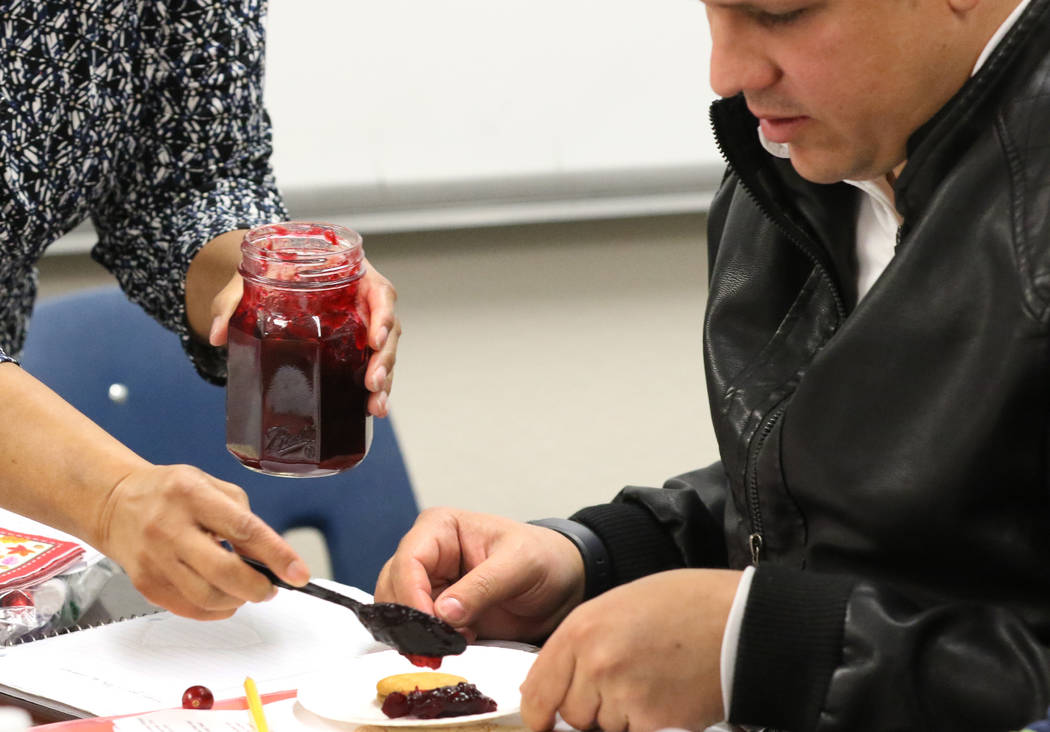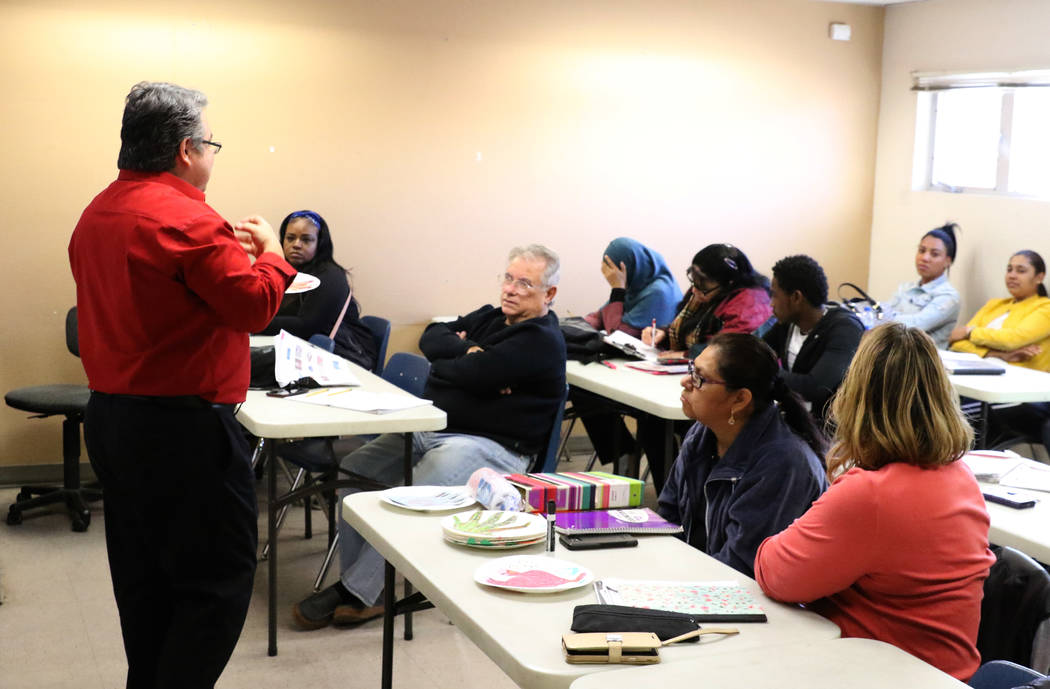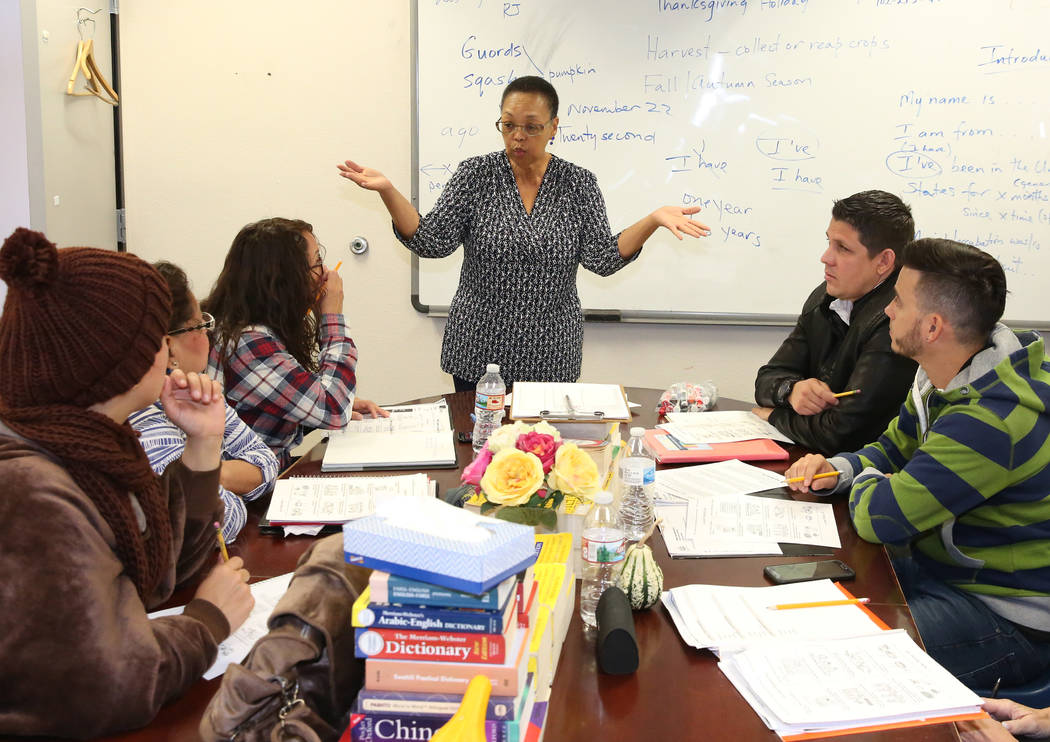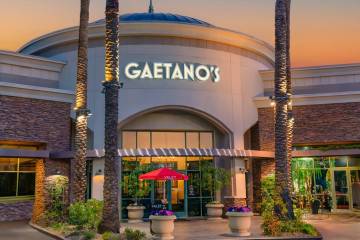Las Vegas immigrants get taste of Thanksgiving
Javier Sanchez’s first Thanksgiving in the United States will be a “Friendsgiving,” though he is barely familiar with the concept.
That’s because the 31-year-old left Cuba three months ago to seek refuge here, landing in Las Vegas with his boyfriend. There is no Thanksgiving equivalent on the island, no holy days in November, Sanchez said. But he certainly has a lot to be thankful for.
“For all of it, for my life, for my friends, for my health, for all,” he said Monday morning during a break from English lessons held at Catholic Charities, where students were working diligently on vocabulary words related to the American holiday.
In Nevada, Catholic Charities serves as the largest refugee resettlement agency. It helps with housing, enrolling children in school and finding appropriate jobs for adults, in addition to helping teach the language and customs.
Just days before Thanksgiving, Sybil Raiman’s “low beginner” class did a Thanksgiving-themed word search. Raiman pronounced the words — including “feast,” “roast,” and “stuffing” — as Cuban migrant Yoandra Henriquez Leyua led the class at the whiteboard, finding the words on the screen.
Next door, Robert Fink explained the customs of Thanksgiving as students traced their hands on construction paper to make “hand turkeys.” Fink, speaking only in English and often gesturing to help explain the meaning, instructed the students to include one thing they’re thankful for on each of the turkey’s feathers.
“You are lucky. You are very lucky to be here. Not everyone who wants to come here can. That’s one thing you can be thankful for,” he said.
He then ticked off the usual list of what folks in America are thankful for: health, family, friends.
‘Survival English’
While refugee resettlement is part of the federal government’s health and human services program, the English lessons taught at Catholic Charities actually come from a Department of Education grant, said Nita Russell-Latham, the program coordinator. That means the program is open to anyone who wants or needs to learn the language.
Years ago, the classes were about 80 percent refugees. The rest were people who for whatever reason didn’t know the language. Now, it’s closer to 50 percent refugees, 50 percent other people. Part of that is due to the drop in refugees entering the United States under the Trump administration.
Either way, the program enrolls every Friday, and about 10 to 15 new students arrive every Monday. Their language skills are assessed, and they’re placed in a class. The fully licensed teachers focus on what Russell-Latham calls “survival English.” The goal is to get students familiar enough with English that they can find employment in the area.
“They need to know how to get on a bus, how to shop, how to fill out forms,” she said.
And earlier this week, the survival English focused on how to talk about Thanksgiving. In Barbara Reuben-Powell’s advanced class, students used higher-level vocabulary words — protein, carbohydrate, recipe, ingredients — to talk about cooking for the big day.
Reuben-Powell also did a taste test. First, her group of students, including Sanchez, ate a raw cranberry. The reactions, of course, included a lot of sour faces.
Then, Reuben-Powell gave a mini-cooking lesson, stressing her vocabulary words, before passing out her homemade cranberry sauce, giving students what she called “America’s favorite cracker” to taste with. One student made a Ritz cracker sandwich.
Something as simple as cranberry sauce, however, caused a debate among Reuben-Powell’s students. Yes, in America, we call it a sauce. But there are a handful of other words that also are appropriate — like dressing, jam, jelly, preserve.
Learning the language isn’t a piece of pie.
‘Like an American’
While most of the students enrolled in Catholic Charities’ classes are new arrivals, some already have made America home.
Graciela Gonzales, 57, came to this country from Mexico without legal documentation in 1976 with her parents. They were in search of a better life, but Gonzales was skeptical at first.
Gonzalez became a citizen around 1990 and had been working in casinos until she was injured recently. She speaks English well but thought the time off from work would be best spent continuing to brush up on the language of her country.
She remembers her first few years in the United States. At first, her family didn’t know what Thanksgiving was.
“Now, we get excited, like everybody else, like an American,” she said.
She’s spending her Thanksgiving with her two children and seven grandchildren. One of her sons is cooking the turkey and ham and bringing it to her house. She’s responsible for pastries and some other desserts.
Across the table from Gonzales, Sanchez is planning his first holiday here. While embracing the American traditions, Sanchez also will be thinking of and honoring his family left behind in Cuba.
He is making a pig leg for dinner — a meat traditionally used to celebrate the start of a new year in Cuba.
Contact Meghin Delaney at 702-383-0281 or mdelaney@reviewjournal.com. Follow @MeghinDelaney on Twitter.
In service of others
In 2017, Catholic Charities helped welcome more than 1,700 refugees to Nevada. About 70 percent of them are from Cuba.
The organization and the federal government help the newcomers get started, but Catholic Charities is always seeking donations to help refugees start their new lives. The following is a list of items Catholic Charities recommends if people want to make donations:
• Used or new household goods
• Hygiene products
• Cleaning supplies
• Used or new linens
• Baby items
• Toys
• School supplies



